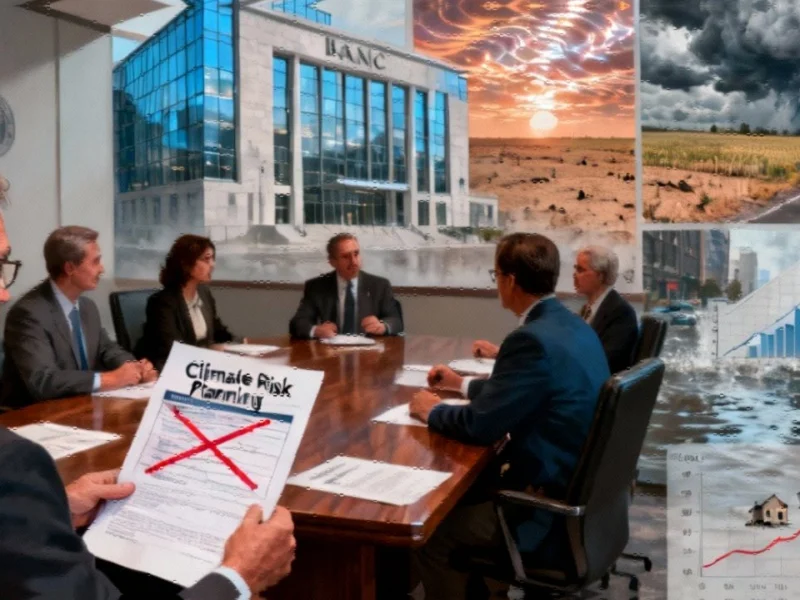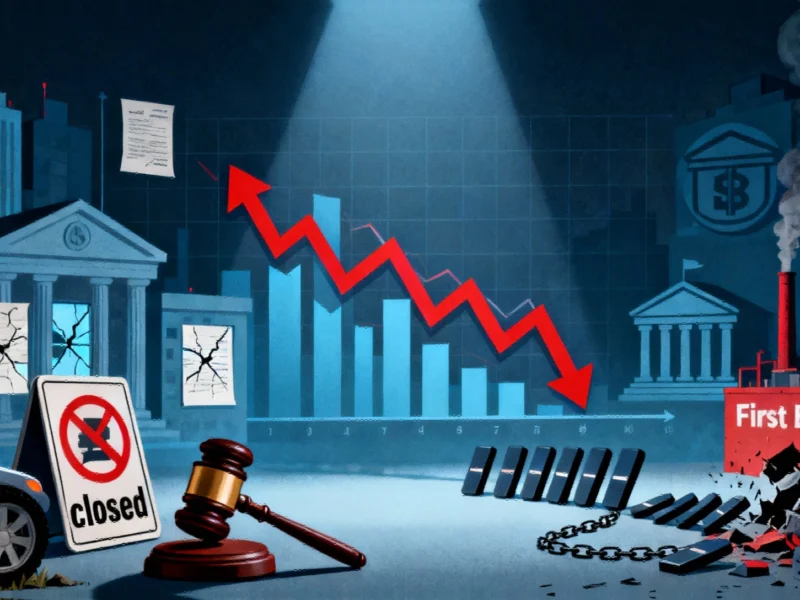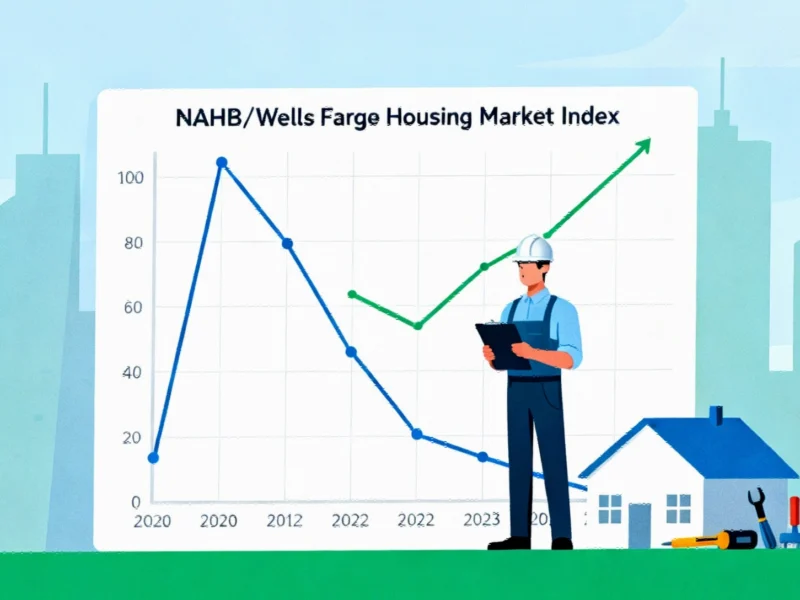Note: Featured image is for illustrative purposes only and does not represent any specific product, service, or entity mentioned in this article.
Federal Banking Regulators Rescind Climate Planning Mandate
Federal regulators have reportedly withdrawn requirements that the nation’s largest financial institutions incorporate climate risk considerations into their long-term planning frameworks. According to reports, the Federal Reserve and Federal Deposit Insurance Corporation announced the policy reversal Thursday, eliminating guidance originally established during the Biden administration.
Regulators Cite Existing Risk Management Frameworks
The Federal Reserve Board staff characterized the rescinded policy as “distracting” and “not necessary,” sources indicate. Banking regulators stated that existing requirements for institutions to “consider and appropriately address all material financial risks” provide sufficient protection against financial system vulnerabilities. This development represents the latest removal of climate considerations from federal policy as the Trump administration prioritizes fossil fuel industries and domestic energy production.
Analysts suggest the policy shift reflects changing political dynamics in Washington. “Certainly the political mood has changed in Washington,” said Ian Katz, managing director at policy research firm Capital Alpha Partners, according to the report.
Divergent Views on Climate Risk Management
Federal Reserve governors expressed divided opinions regarding the policy reversal in individual statements accompanying the announcement. Trump-appointed board members defended the decision, with Vice Chair for Supervision Michelle W. Bowman stating that guidance extending beyond typical strategic planning horizons invited “highly speculative” analysis. Governor Christopher J. Waller reportedly offered a succinct endorsement: “Good riddance.”
In contrast, Biden nominee Michael S. Barr warned of potential “significant economic and financial consequences” without proper planning for climate risks. “Revoking the principles as climate-related financial risks increase defies logic and sound risk-management practices,” he wrote, according to the report.
Industry Response and Broader Context
Industry trade groups welcomed the regulatory change. The Bank Policy Institute, which represents the nation’s leading banks, stated that members were already “devoting substantial resources” to managing climate-related financial risks. “Banks already manage climate risk as part of their existing risk management frameworks,” said Austin Anton, a spokesman for the trade group. “This guidance was not additive; it was redundant.”
The policy reversal follows similar moves across federal agencies. The Office of the Comptroller of the Currency abandoned the climate risk policy in March, and the Fed withdrew from a climate-focused network of global central banks in January. Meanwhile, the Securities and Exchange Commission recently adopted modified rules governing climate-related risk disclosures by public companies after opposition from Republican Party members, energy industry representatives, and agricultural groups.
Scientific Context and Economic Implications
Researchers have documented that Earth’s average temperatures have risen more than 1 degree Celsius over the past two centuries due to fossil fuel combustion and the greenhouse effect. While this increase may appear modest, scientific analysis indicates every fraction of a degree intensifies extreme weather events that damage property and agricultural production. As greenhouse gas concentrations reach unprecedented levels, studies project that continued climate change could cost the global economy over $38 trillion annually in coming decades.
Critics of the regulatory change warn that eliminating climate risk planning requirements could have substantial economic consequences. Former Biden administration climate advisor Laurie Schoeman noted that the original guidance provided important direction, stating, “It was helpful to have the government saying, ‘We didn’t care how you were doing it, but you had to do it.'”
The policy shift occurs alongside other industry developments and market trends in the financial sector. Meanwhile, technology sectors continue to evolve with recent technology advancements and related innovations shaping various industries.
The original climate risk guidance, adopted in October 2023, applied to financial institutions holding more than $100 billion in assets. At that time, Fed Chair Jerome H. Powell described the policy as “squarely focused on prudent and appropriate risk management.”
This article aggregates information from publicly available sources. All trademarks and copyrights belong to their respective owners.



